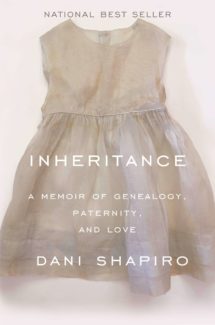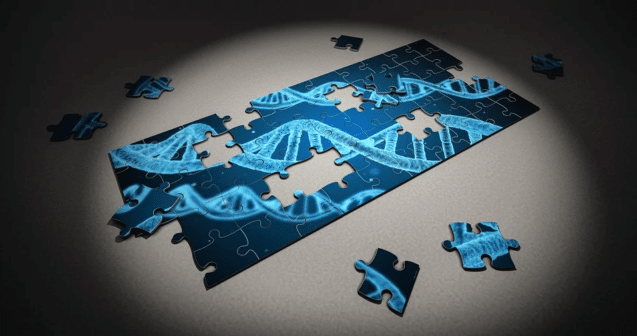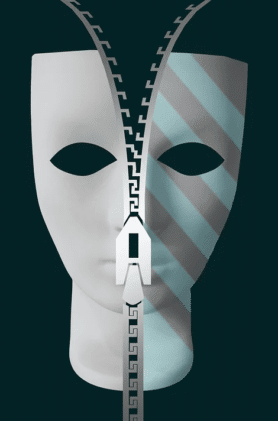 Who Are We Really?
Who Are We Really?
Author: Dani Shapiro
Dani Shapiro has long been self-aware. She is a memoirist after all. She has even shared her painful transition away from her upbringing in Orthodox Judaism with us. Settling into who she is and what she believes only provides flitting, false security though. A chance DNA test – one of those ubiquitous discover-your-family-tree packages so prevalent online – reveals that what she thought she knew is all wrong. She is not her father’s daughter. Her sister is not, biologically, her sibling. She is not 100% Ashkenazi Jew, as she had always been told, as the ancestors who line her wall and peer austerely through their faded pictures already knew. She is something else, a blond haired, Protestant creation and only half associated with the ancestors she has practically worshiped over the years. At least now, however, she can have the Christmas cookies she has always wanted. But what does this long held secret say about her parents, about their religion (the tenants of Orthodox Judaism, as we find, don’t hold with artificial insemination by a donor other than the father), about their relationship to one another, about everything else they have kept hidden and why.
 For me, this was a strange book, to say the least. This is my first encounter with Dani, a woman who has a great breath of honesty and the ability to show herself at best and worst – most put together and most shattered. Her voice resonates and the truth of her feelings sings. Yet. . . yet, as the book progresses I admit I just don’t fully understand the trauma. Perhaps this is one of those things you have to live, or perhaps it’s embedded in Dani’s own rich history. My family has never been strong on ancestors and history and most of ours is admittedly lost. For Dani, on the other hand, her ancestors’ rich and traumatic past defined her own and a sense of belonging, something she inexplicably never did have, was paramount to identity. The discovered results of her genetic testing were more than an oddity and beyond interesting. They tore apart and re-stitched the very fabric of her being.
For me, this was a strange book, to say the least. This is my first encounter with Dani, a woman who has a great breath of honesty and the ability to show herself at best and worst – most put together and most shattered. Her voice resonates and the truth of her feelings sings. Yet. . . yet, as the book progresses I admit I just don’t fully understand the trauma. Perhaps this is one of those things you have to live, or perhaps it’s embedded in Dani’s own rich history. My family has never been strong on ancestors and history and most of ours is admittedly lost. For Dani, on the other hand, her ancestors’ rich and traumatic past defined her own and a sense of belonging, something she inexplicably never did have, was paramount to identity. The discovered results of her genetic testing were more than an oddity and beyond interesting. They tore apart and re-stitched the very fabric of her being.
The mystery here – something most people in this situation never do unravel – is easily solved for Dani very early on. A chance cousin on the website, a friend who is good at sussing out just this kind of thing, and voila, Dani has her answer and a YouTube video of her real father, a med student at the time of her conception. This is irrefutable proof of her always felt otherness. What follows then isn’t a search and find, at least not in the traditional sense, but an overcoming that is purely emotional. This is where many reviewers also say they lost the narrative, or at least a full understanding. Dani’s sense of betrayal seems disproportionate to most of us. Her mother wasn’t involved in an embroiled affair and while Dr. Farris, the man who ran the institute and derived unique approaches to the then emerging fields of artificial insemination was not always on the up-and-up (he mixed sperm without, potentially, telling the parents and had that thread of eugenics running underneath his operation) Dani’s parents just wanted a child to love and were willing to do what it took to get that. Her father in particular, a man she now sees as divorced from herself, was not the bad guy she fears, but from the reader’s perspective (ok, mine) he seems a bit of a hero for giving up so much to fulfill his wife’s desire for a child.
 Of course, there is the entire health aspect. Dani’s son exhibits rare symptoms of a disease that she details in one of her other biographies, yet Dani’s mother keeps stating that no such thing exists in their family even though she knows that strictly speaking, half of Dani’s genes are from somewhere else. Here then, we get the betrayal vibe and can understand the author’s anger. Yet this isn’t where she dwells with that anger. Indeed, from the sounds of it Dani skates rather close to a breakdown, and while she clearly articulates all her thoughts and feelings, it’s hard for us to really understand, quite frankly, what the big deal is. Medically this knowledge is essential but it changes nothing else. Dani’s parents still loved her and although her father wasn’t biologically related, he was clearly her father and would never be anything else.
Of course, there is the entire health aspect. Dani’s son exhibits rare symptoms of a disease that she details in one of her other biographies, yet Dani’s mother keeps stating that no such thing exists in their family even though she knows that strictly speaking, half of Dani’s genes are from somewhere else. Here then, we get the betrayal vibe and can understand the author’s anger. Yet this isn’t where she dwells with that anger. Indeed, from the sounds of it Dani skates rather close to a breakdown, and while she clearly articulates all her thoughts and feelings, it’s hard for us to really understand, quite frankly, what the big deal is. Medically this knowledge is essential but it changes nothing else. Dani’s parents still loved her and although her father wasn’t biologically related, he was clearly her father and would never be anything else.
The narrative finally comes full circle as Dani meets with her biological father and relatives and seeks some kind of acceptance in a surprise situation that we know she will never find acceptable. That is the real force here, the idea of accepting and living with what we cannot. But still, the why here – why such a horrified sense of betrayal, why so much angst and anger – eludes some of us. And yes, the early history of artificial insemination does have a lot to answer for as far as the ethics of truth behind what the doctor’s chose to reveal to the patients, but the parents who sought these fertility cures hardly come off as monsters and the entire feeling that a parent must own up to the means of conception just doesn’t feel the same to all of us. Inheritance does, however, open this Pandora’s box for readers and gets us thinking, not only about fertility issues and the science behind genetics, but about what is ours to keep and what we owe others, most especially our children.
– Frances Carden
Follow my reviews on Twitter at: https://twitter.com/xombie_mistress
Follow my reviews on Facebook at: https://www.facebook.com/FrancesReviews
[AMAZONPRODUCTS asin=”0525434038″]
- Book Vs Movie: The Shining - April 6, 2020
- Thankful For Great Cozy Mysteries - December 13, 2019
- Cozy Mysteries for a Perfect Fall - October 20, 2019


